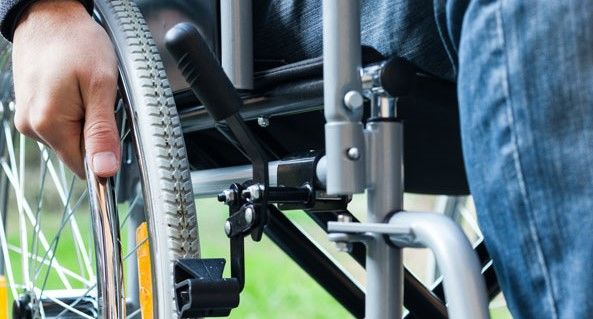My Whole Life Came To A Grinding Halt

Sustaining a spinal cord injury is a life altering experience. This interview is about a man who chose to never give up on his belief that he would defy the odds and one day walk again.
I had the opportunity to interview a man living with a spinal cord injury (SCI). His pseudonym is Henry. He was injured in a car accident nearly 20 years ago. He was 64 years old. Henry described his life prior to that accident as beautiful. He was successful in his own business and he made good money.
“I was travelling the world doing my business.”
Henry was also happy in his personal life. He and his second wife had been together nearly twenty years. Between them, they had raised three children. I asked him to take me back to that fateful night.
Henry was a passenger in a car, driving along a busy, multi-lane, city highway when it started to experience engine problems and began slowing down. Motorists in the other lanes started passing them. Then, all of sudden, Henry felt a terrible jolt. Their car had been hit from behind on its left quarter panel. The force of the crash caused it to spin out of control and Henry to pass out.
“My whole life came to a grinding halt!”
After a minute or two Henry regained consciousness.
“The next thing I remember I was hanging in there – the seat and the back-rest had been pushed back, somehow at an angle. I wanted to straighten up. I tried to pull in my legs, which I couldn’t do. My legs couldn’t move.”
It was in that moment that Henry realized something was drastically wrong. He then fell unconscious again. The next thing he remembered was hearing voices from the ambulance attendants. They were pulling him out of the car and onto a stretcher.
“I must have passed out again, because when I started to realize what was going on I was at the hospital.”
Someone came into Henry’s hospital room and told him that he’d been in a car accident. Slowly but surely the events of the accident came back to him. Where he’d been. What had happened. Henry recalled that he felt miserable. He couldn’t get out of bed. He had problems controlling his bladder. He couldn't walk.
“I kept drifting off to sleep and then waking up. I was in no shape to hold a discussion.”
Henry recalled getting x-rays and other examinations like that. He knew he had broken a few ribs; caused by the restraint of the seat belt. He could feel this pain, but no other. In fact, he felt nothing from his waist down.
It wasn’t until the next day that a doctor told Henry he had fractured his spine in two places. He had suffered a spinal cord injury (SCI); leaving him paralyzed from the waist down. It was described as an incomplete SCI. But he was told he would likely never walk again.
Henry didn’t want to believe it. How else was he going to keep doing what he had been doing and so successfully, he thought!
“I was always able to fix whatever had to be fixed – something mechanical, by hand, by brute force or by money – I always had the means to repair whatever was necessary. I figured this [injury] had to be reconciled. I was convinced that this would rectify itself.”
To Henry, this meant that his spinal cord would heal. He would walk again. However long that took – he would walk again. Did Henry truly believe this or was it just optimism, I asked?
“Where does optimism stop and belief start,” he replied. “Some people don’t have any optimism at all. They see everything negative. Others see it positive and say, ‘well it will be alright’. My attitude was to say it would be alright.”
In Canada, approximately 119,000 individuals are living with an SCI. Spinal cord injuries are a leading cause of disability. The World Health Organization reports that every year, around the world, between 250,000 and 500,000 people suffer an SCI. Accidents, such as falls, car crashes, and gunshot wounds are leading causes of SCI. It can happen to anyone, at any time. At Disability Matters, you have a voice.
Tell us your story. It may be similar to Henry’s. It may be a traumatic accident causing a brain injury; or one that caused a muscular injury, say to your back. It could also be an injury caused by a non-traumatic event such as a stroke, heart attack or cancer. Whatever the cause, whatever the condition…we’re here to listen.


Comments (0)
This thread has been closed from taking new comments.
Related Posts
Spinal Cord Injury: The…
I recently posted a blog about an interview I had with Henry, a man in his 60s who had sustained a hemiplegic…
Read moreJune Is Brain Injury Awareness…
June is brain injury awareness month in Canada. Sustaining a brain injury can happen to anyone at anytime…
Read more